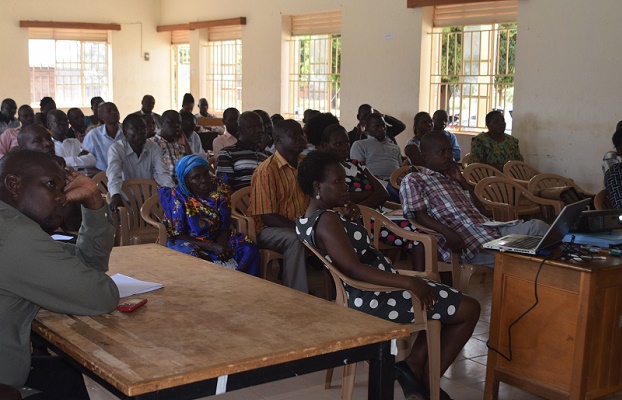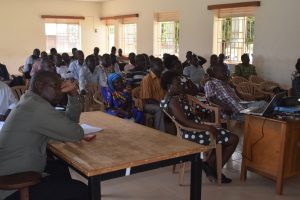
Kakaire Ayub Kirunda | They struggle to be accepted by both their families and the community. They have challenges getting transport to health facilities. And even when they get to health facilities, they face infrastructural challenges ranging from unfriendly seats, beds to washrooms. We are talking about women with walking disabilities (WWD) in the eastern Uganda district of Kibuku.
“There were difficult places to climb like at the entrance where there are steps, by then they had not put this inclined walkway [ramp] where you can just move without difficulty. So, I would reach where the steps were and lift one knee and put it on one step and do the same to the other. I would struggle until I entered inside,” a formative report from a just ended study that explored the use of a community scorecard to improve maternal and newborn health service delivery in Kibuku, quoted a WWD.
In the same report, another WWD said of sanitary facilities: “You would find the latrines dirty, but I had nothing to do [implying she had no choice but to use the latrine in that dirty state] I would crawl in that messed-up place like that. The facility does not have separate latrines for disabled people.”
It is such challenges among others that this study by Makerere University School of Public Health in partnership with Kibuku, the Research in Gender and Ethics (RiNGS) Consortium and the Future Health Systems Research Consortium sought to bring on table of decision makers and stakeholders in the district. From the study, there is need to provide: Basic needs and mobility during pregnancy, delivery and after delivery; improved infrastructural needs including examination and delivery beds, seats, sanitary facilities, ramps. A responsive health system (short waiting time) for WWDs was espoused as well.
The United Nations’ Convention on the Rights of Persons with Disabilities guarantees persons with disabilities have the same level of right to access quality and affordable healthcare, including sexual and reproductive healthcare services.
So, has anything changed over the last one year in Kibuku? Having attended the dissemination of the study findings at the district headquarters mid this month, I must say there are great strides and encouraging signs of change.

The emotions, debate and ‘commitments’ that followed the presentation of the recorded voices of the WWDs at the dissemination was a positive sign that issues of this maginalised population can earn a place on the district league of priorities. It was encouraging seeing health workers pledging to treat well the WWDs going forward. “Due to the large number of clients we work on, sometimes we forget to find out if there are people with disabilities in queue. But from now on we shall be looking out for them,” a senior clinical officer pledged.
From the office of the Secretary for Health, to that of District Health Officer, as well as the District Internal Security Officer, the substantive heads of these departments pledged to enforce the National Disability-Inclusive Guidelines for Uganda to ensure that rights of the disabled are respected. The district leadership also asked health facility heads to henceforth provide one stance for persons with disabilities on all latrine blocks. The facility heads were also advised to use some of the primary healthcare funds to construct ramps and fix support railings where they do not exist.
If implemented, these will go a long way towards alleviating some of the pain that the WWDs have been enduring. As the Makerere Research team lead put it, while the “suggestions sounded great, they need to be included in sub county workplans and budgeted for” as the only way of giving assurance to the WWDs. I also noticed that while there were WWDs in attendance, save for the District Speaker who is empowered, none of the others said a thing. This calls for more emancipation of these women to be able to speak for themselves.
*The author is a Communications Specialist at Makerere University School of Public Health.
